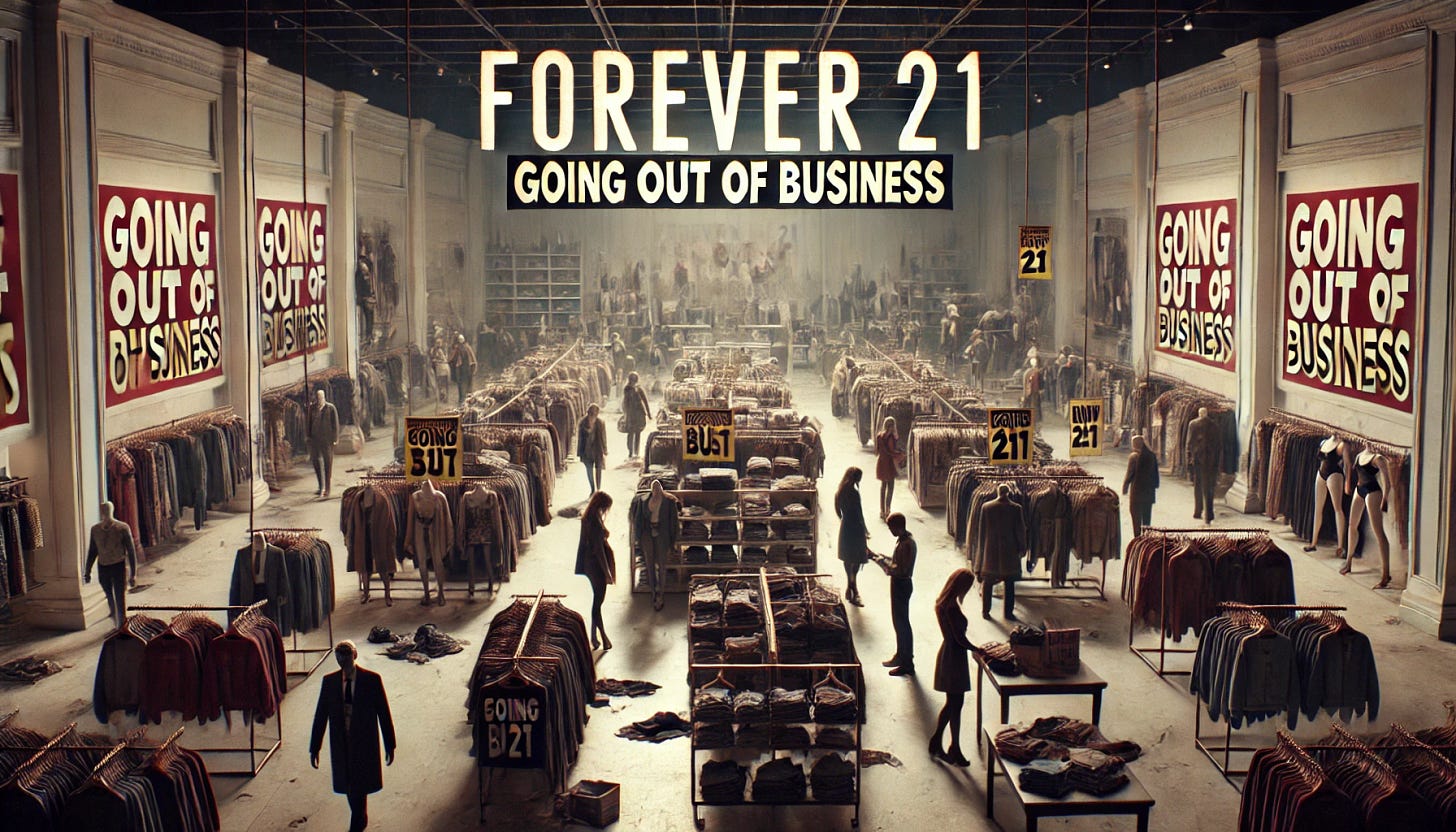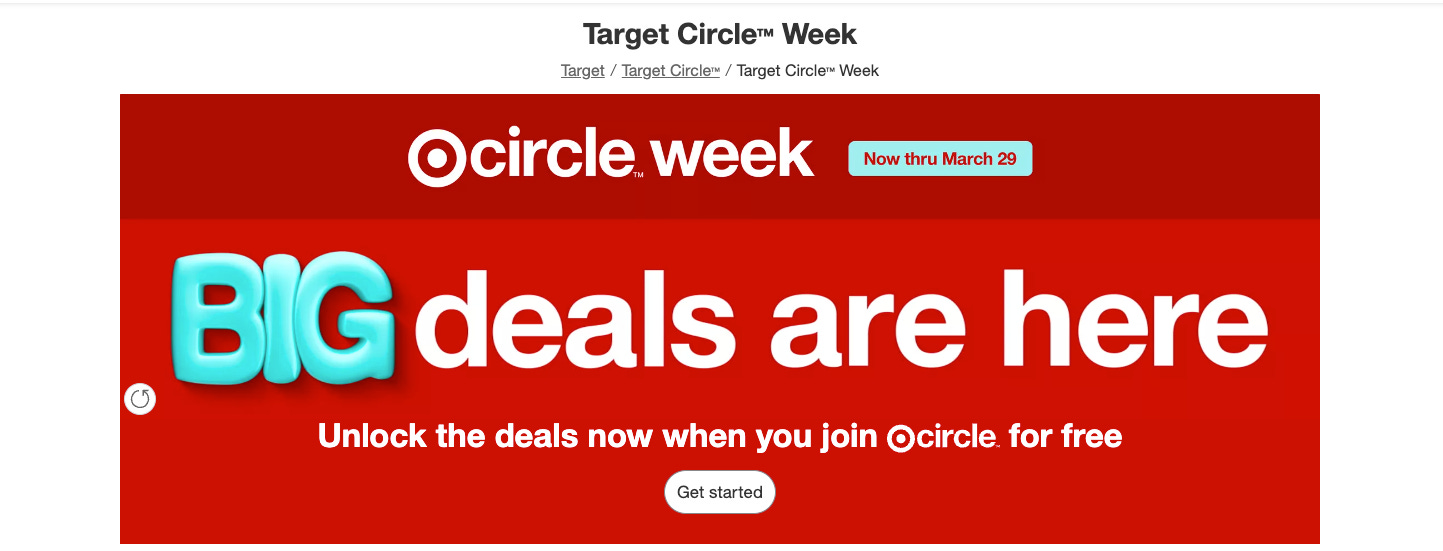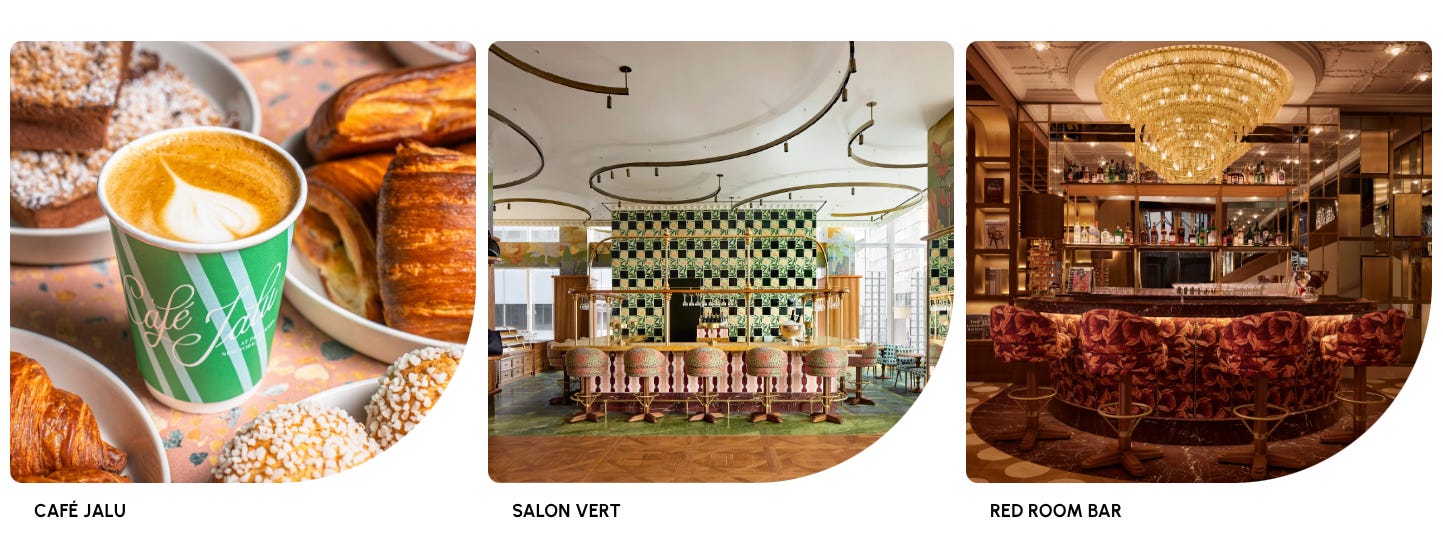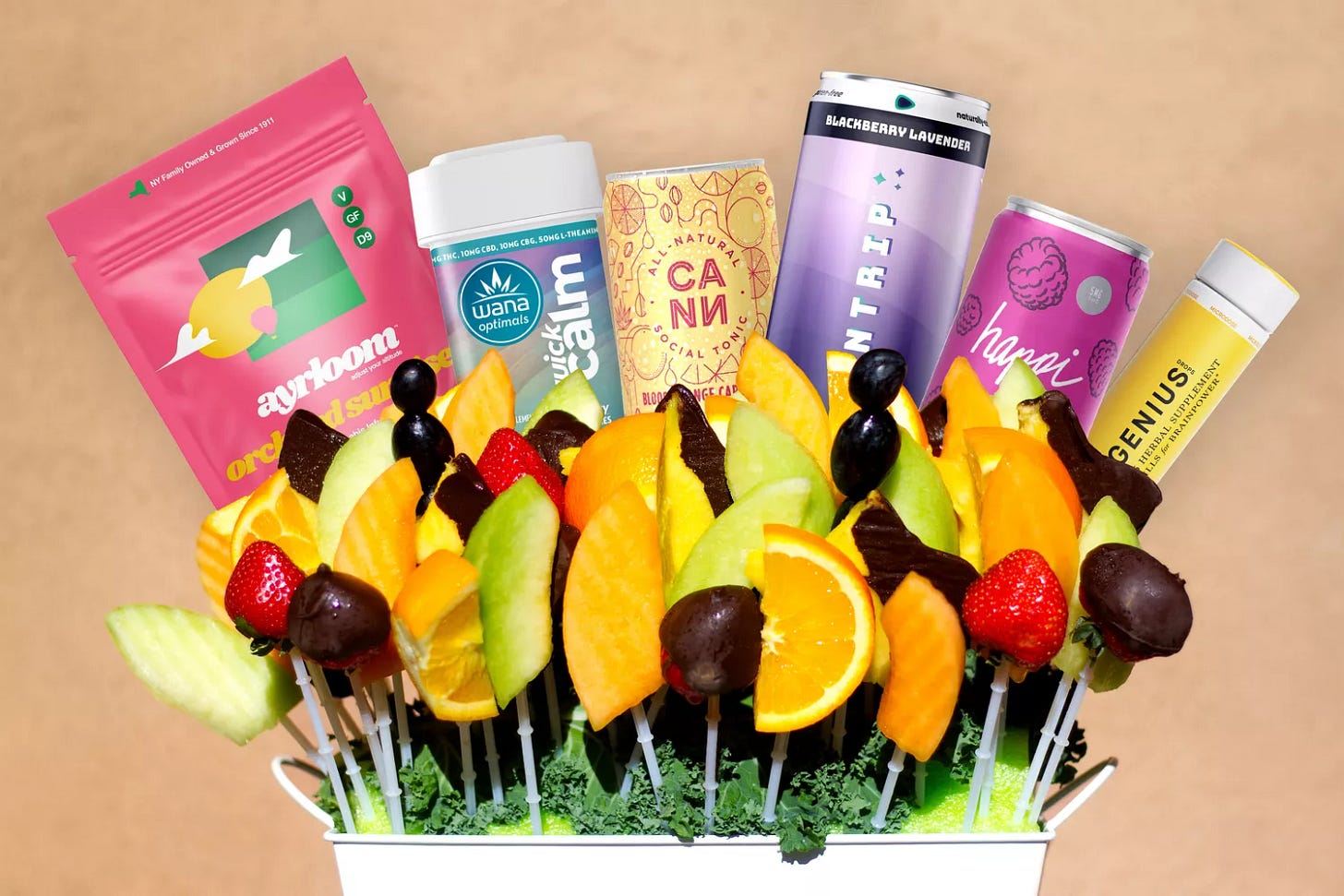This Week in Retail #70
Hey Friends,
What a week it has been. This week we are discussing Luxury brands embracing Amazon as a distribution channel, big beverage acquisitions fueling the functional drink category, BNPL’s expansion into everyday purchases, cannabis becoming more mainstream and, retailers using loyalty programs to compete in the discount wars.
Also, I rant a little bit on fast fashion…..
This Week in Retail Therapy
Forever 21 has been all over my feed this week, but for those of you who were not aware, the retailer has filed for bankruptcy protection for the second time in six years and is expected to close all its U.S. stores due to intense competition from fast-fashion e-tailers like Shein and Temu. The retailer has begun liquidation sales at over 350 locations, though it remains open to potential buyers. Despite efforts to turn things around, including a partnership with Shein, the business has faced mounting losses, owing $1.58 billion. While its U.S. operations are shutting down, the Forever 21 brand and international stores will continue under Authentic Brands Group.
I am not one to scapegoat but Shein and Temu are not the cause of your demise. Back in its heyday, Forever 21 did what every self-respecting corporate behemoth does: expand like a kid building a Minecraft empire. Malls? Flood ‘em. International markets? Sure, why not? Could they afford it? No. But hey, what’s a little unsustainable growth among friends?
Their brilliant strategy? Open massive stores in prime locations, stock them with thousands of items nobody asked for (Pepto-Bismol pink faux fur coats, anyone?), and hope for the best. Spoiler alert: that’s not how business works. Instead of innovating, they just kept stretching themselves thinner than their $8 leggings.
Forever 21’s bankruptcy filing complains that Shein and Temu exploited the de minimis exemption, a loophole allowing goods under $800 to be imported without duties. And sure, that might have helped Shein ship 13-cent tank tops straight to American doorsteps, but let’s be real—Forever 21 was already struggling long before Shein became a household name.
Maybe the real problem wasn’t Chinese e-tailers, but the fact that Forever 21’s business model relied on customers who aged out of their own brand. If you built your empire on trendy 21-year-olds, what happens when they turn 30? (Answer: they leave, and the next generation goes somewhere else.)
Take a page from the Abercrombie playbook - you always have options to innovate.
I feel like we are approaching the finance first era…..Klarna, one of the biggest players in the Buy Now, Pay Later (BNPL) space, is deepening its presence in retail and food delivery with new partnerships with Walmart and DoorDash.
🔹 Walmart Partnership: Shoppers can now use Klarna at Walmart stores and online, allowing them to split purchases into four interest-free payments. This is a significant expansion of Walmart’s existing BNPL options.
🔹 DoorDash Partnership: Klarna is integrating with DoorDash, allowing customers to use BNPL for restaurant and grocery deliveries. Klarna’s partnership with DoorDash shows BNPL is moving into everyday spending categories, not just major purchases. This could change how people budget for essentials like groceries and takeout.
Retailers Embracing BNPL for Budget-Conscious Shoppers: With consumers increasingly focused on affordability, retailers and service providers see BNPL as a way to drive larger transactions and retain customers.
Competitive Landscape: Klarna’s expansion pits it against Affirm, which already has a partnership with Amazon, and Afterpay, which is backed by Square/Block. Klarna’s push into new categories could give it an edge in the U.S. market.
Target’s Circle Week is back, offering deep discounts exclusively for members of its free loyalty program, Target Circle.
The event runs for a limited time and competes directly with Amazon Prime Day and Walmart+ Week. Discounts apply across key categories, including electronics, home goods, apparel, and groceries. Target is using the sale to encourage more consumers to sign up for Target Circle, which offers personalized deals and additional savings.
Target has been increasingly using Target Circle to personalize promotions and retain shoppers. The event helps drive sign-ups and long-term loyalty. Unlike Amazon Prime ($139/year) and Walmart+ ($98/year), Target Circle is free, making it a more accessible loyalty program for cost-conscious consumers. With rising concerns about inflation, shoppers are looking for deals. Circle Week serves as a way to boost both digital and foot traffic ahead of major shopping seasons.
I’m late to the party with this one as most retail media outlets posted about this story last week, but on March 17, PepsiCo announced its acquisition of Poppi, a fast-growing prebiotic soda brand, in a $1.95 billion deal. Factoring in $300 million in anticipated tax benefits, the net purchase price is $1.65 billion.
The acquisition aligns with PepsiCo’s strategy to expand its portfolio of functional and health-focused beverages, following previous investments in brands like Kevita (probiotics) and Bubly (sparkling water).
The deal is subject to regulatory approval and other customary closing conditions, though additional terms were not disclosed.
Poppi’s Rapid Rise
🔹 Founded in 2015 by Allison and Stephen Ellsworth, Poppi started as a homemade kitchen experiment.
🔹 The brand gained national attention after securing investment on Shark Tank in 2018.
🔹 Poppi quickly expanded, becoming a leader in the functional soda space with a focus on gut health and clean ingredients.
This acquisition strengthens PepsiCo’s position in the growing better-for-you beverage category, competing directly with rivals like Olipop in the prebiotic soda market.
Printemps, the iconic French luxury retailer established in 1865, has expanded to the United States with the opening of its first U.S. store at One Wall Street in New York City's Financial District. The store officially opened its doors on March 21, 2025, following a soft opening on March 12.
Store Design and Features:
🔹 Location: The 55,000-square-foot, two-level store is situated within the historic One Wall Street building.
🔹 Interior Design: Renowned architect Laura Gonzalez led the store's design, incorporating immersive elements such as changing ambient sounds and mood lighting to create a dynamic shopping environment.
🔹 Red Room: A highlight of the store is the "Red Room," an interior landmark featuring mosaics designed by artist Hildreth Meière. This space has been transformed into a unique "shoe forest," showcasing an extensive collection of footwear.
Offerings and Experiences:
🔹 Curated Shopping Areas: The store comprises seven distinct shopping zones, each presenting a curated selection of multi-brand products, blending established luxury labels with emerging designers.
🔹 Dining Options: Under the culinary direction of Gregory Gourdet, the store features multiple food and beverage concepts, enhancing the overall customer experience
🔹 Technology Integration: Printemps integrates advanced technologies, including customer wayfinding systems and heat maps, to optimize the shopping experience and streamline store navigation.
Strategic Vision:
CEO Jean-Marc Bellaiche envisions the New York store as a "living entity," aiming to fill the void left by luxury retailers like Barneys and Jeffrey, which closed in 2020. The store is designed to serve as a community hub, hosting engaging events and offering a dynamic retail environment.
Printemps plans to launch a U.S. e-commerce platform in the fall of 2025, further expanding its presence in the American market and complementing the physical store's offerings. For more information and updates, you can visit Printemps New York's official website or follow their Instagram account.
To me this is the quintessential third place and I am eager to learn more. Invest in your spaces and customers will invest in you. One trend I’m tracking is that retail stores are being designed more like hotels, using in-store amenities to drive engagement.
The drive-through may start to feel more like a chatbot…..Yum! Brands, the parent company of Taco Bell, KFC, Pizza Hut, and Habit Burger & Grill, has partnered with NVIDIA to accelerate AI adoption across its global restaurant network.
The initiative aims to enhance customer experiences, improve efficiency for employees, and provide franchisees with faster, cost-effective, and safer technology, according to Yum’s chief digital and technology officer, Joe Park.
The partnership focuses on three key AI-driven innovations:
🔹 Voice AI Ordering – Automating order-taking at drive-thrus and call centers to speed up service.
🔹 Computer Vision – Using cameras and AI to monitor and optimize kitchen operations.
🔹 Restaurant Intelligence – Leveraging AI-generated analytics to improve operational performance.
Yum! has already begun piloting these technologies in select Taco Bell and Pizza Hut locations in the U.S., with plans to expand to 500 restaurants across all brands in Q2.
Edible Arrangements, best known for its fresh fruit bouquets and chocolate-dipped treats, is entering the cannabis space with a line of THC-infused edibles. The product line will include THC-infused chocolates, gummies, and fruit-flavored confections, and will be launching in states where recreational cannabis is legal. Cannabis laws vary by state, so Edible will need to navigate complex compliance requirements for distribution and advertising.
Edible Arrangements has rebranded to Edible Brands, signaling a broader focus beyond just fruit gifts. The U.S. cannabis edibles market is projected to grow to $10 billion by 2026, making it an attractive segment for expansion.
Edible Arrangements already has a strong reputation in the gifting and confectionery space, which could help it stand out in the competitive cannabis market.
Michael Kors, a luxury brand under Capri Holdings, has officially launched a storefront on Amazon, marking a significant shift in its digital strategy. The move is part of a broader trend of premium and luxury brands embracing Amazon’s vast customer base while maintaining a level of control over pricing and authenticity.
The Amazon storefront features a curated selection of handbags, footwear, apparel, and accessories. The products are being sold directly by Michael Kors, not third-party resellers, helping the brand maintain its premium positioning. The launch follows Amazon’s efforts to make its platform more appealing to high-end brands, including enhanced brand protections and dedicated “Luxury Stores.”
Michael Kors already has a strong presence through its own website and department stores, but Amazon allows the brand to tap into a wider audience that prefers the convenience of Prime shipping and one-click purchasing.
By selling directly, Michael Kors can better combat unauthorized sellers and counterfeit issues that have plagued Amazon’s luxury offerings in the past.
If Michael Kors sees success, it could influence more luxury brands to reconsider their approach. Levi’s and Coach have also partnered with Amazon as part of it’s luxury stores offering, and to me this feels like a logical progression of their Shopbop acquisition.
Guess?, Inc. (NYSE: GES) has received a non-binding acquisition proposal from WHP Global through its affiliate WHP Investments, LLC to acquire all outstanding shares—except those held by major shareholders Paul Marciano, Maurice Marciano, and Carlos Alberini—for $13.00 per share in cash.
The proposed acquisition would be financed through a combination of equity, third-party debt, and reinvestment by the existing major shareholders. WHP Global’s proposal assumes that Guess? will continue operating as usual with no major strategic shifts. In April 2024, Guess? and WHP Global partnered to acquire the rag & bone fashion brand, with Guess? managing its U.S. and U.K. stores and global distribution.
At this stage, Guess? shareholders are not required to take any action while the Board reviews the proposal.
Lowe’s has introduced Lowe’s Essentials, a new private-label brand, with an initial lineup of eight everyday home and garden items to boost Springfest, including hangers, a watering can, a garden tool set, a stainless steel grill brush, and a foam kneeling pad.
Lowe’s aims to strengthen its portfolio of owned brands, which include Kobalt, Allen + Roth, Origin21, Style Selections, and Sta-Green. Private-label products typically yield higher profit margins than national brands, supporting the company’s revenue and margin growth.
Lowe’s isn’t alone in leveraging seasonal demand. Amazon’s Big Spring Sale (March 26–31) will offer up to 40% off across 35 categories, including apparel, beauty, outdoor furniture, and garden supplies.
Lowe’s is also preparing for potential tariffs under a new Trump administration. Despite diversifying its supply chain during Trump’s first term, 40% of Lowe’s products remain sourced overseas. The company is monitoring potential policy changes that could impact pricing and supply chain costs.
Satish Malhotra has resigned as CEO of The Container Store, effective immediately, to pursue other opportunities, according to an internal email from board chair Joel Bines.
Instead of appointing a direct successor, The Container Store has created an Office of the CEO to oversee operations and strategy. Joel Bines will serve as executive chairman, leading this office. Martin Schumacher, previously chief transformation officer, has been promoted to chief commercial officer.
That’s all folks…..Have a great week!






